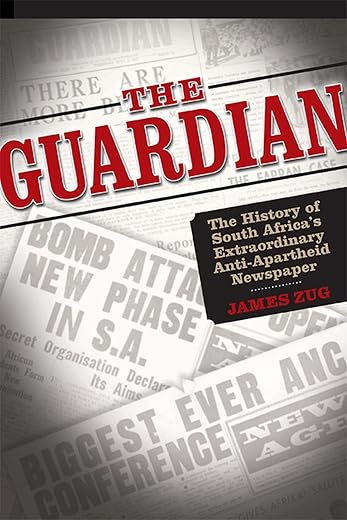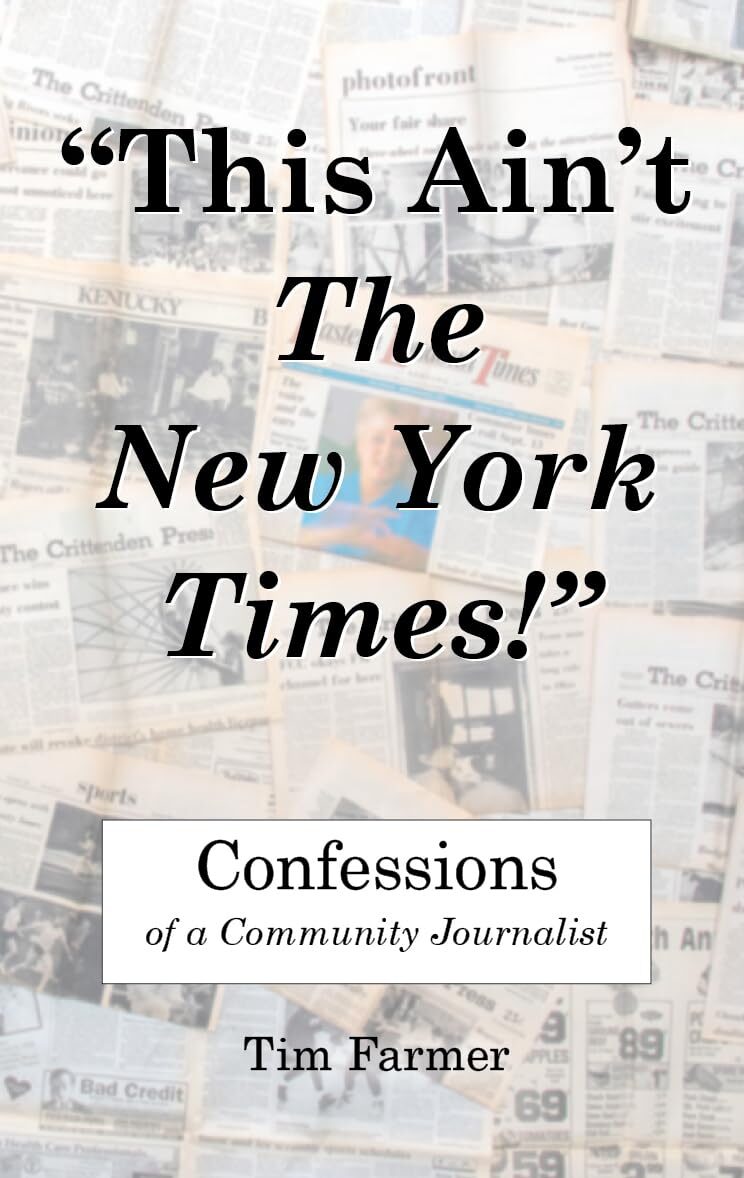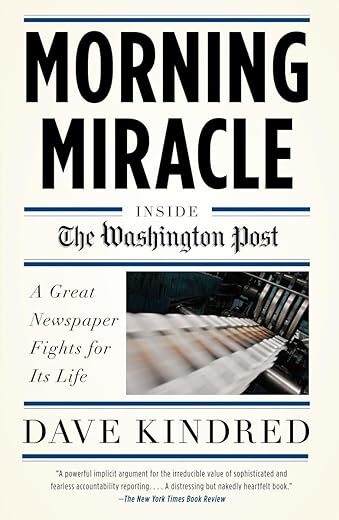
£10.14
The Guardian: The History of South Africa’s Extraordinary Anti-Apartheid Newspaper by James Zug Price comparison
The Guardian: The History of South Africa’s Extraordinary Anti-Apartheid Newspaper by James Zug Price History
The Guardian: The History of South Africa’s Extraordinary Anti-Apartheid Newspaper by James Zug Description
The Guardian: The History of South Africa’s Extraordinary Anti-Apartheid Newspaper
Discover the incredible journey of a pivotal publication with The Guardian: The History of South Africa’s Extraordinary Anti-Apartheid Newspaper by James Zug. This meticulously researched book delves into the life and legacy of one of South Africa’s most influential newspapers, a beacon of hope during the darkest days of apartheid. This expertly crafted narrative not only memorializes the newspaper’s role in the anti-apartheid movement but also enriches our understanding of South Africa’s complex history.
Key Features of The Guardian
- In-Depth Historical Analysis: Zug offers readers an unrivaled exploration of how The Guardian exposed injustices during apartheid, serving as a voice for the marginalized.
- Engaging Narrative Style: The book is written in a captivating style, making complex historical events accessible and engaging for readers.
- Comprehensive Coverage: Spanning 371 pages, it thoroughly covers not just the newspaper’s history but also its impact on both local and global scales.
- Quality Publication: Published by Michigan State University Press, this paperback edition is thoughtfully produced, enhancing your reading experience.
- Well-Researched: James Zug draws from a wealth of primary sources, interviews, and archival material, ensuring accuracy and depth in his storytelling.
Benefits of Reading The Guardian
Reading The Guardian: The History of South Africa’s Extraordinary Anti-Apartheid Newspaper provides a multifaceted understanding of a critical period in South African history. You will:
- Gain insight into the relentless fight against apartheid and the role media plays in social change.
- Understand the historical context that led to significant political transformations in South Africa.
- Appreciate the courage and resilience of journalists and activists who stood up against oppression.
- Enhance your cultural literacy by exploring how literature and journalism intersect with democracy and human rights.
Price Comparison Across Suppliers
When looking to purchase The Guardian: The History of South Africa’s Extraordinary Anti-Apartheid Newspaper, prices may vary among different retailers. Below is a brief overview of how prices stack up:
| Supplier | Price |
|---|---|
| Amazon | $24.99 |
| Barnes & Noble | $26.99 |
| Books-A-Million | $25.49 |
As you can see, there are competitive options available, allowing readers to choose their preferred supplier for purchasing The Guardian.
Trends from the 6-Month Price History
Analyzing the 6-month price history chart reveals interesting trends. Over the past months, the price of The Guardian has generally remained stable, with minor fluctuations. The highest recorded price reached $29.99, while the lowest dipped to $22.99. This stability suggests consistent demand for the book, reflecting its importance in both educational and literary contexts.
Customer Reviews Summary
Customer feedback on The Guardian: The History of South Africa’s Extraordinary Anti-Apartheid Newspaper highlights numerous strengths, along with a few criticisms:
- Positive Aspects: Many reviewers praise Zug’s ability to encapsulate complex historical events in a relatable narrative style. Readers appreciate the depth of research and the ability to connect past events to present issues.
- Critiques: Some readers noted that the book could venture into dense territory, making it challenging for those unfamiliar with the historical context. However, the overall sentiment remains overwhelmingly positive.
Explore Related Review and Unboxing Videos
To further enrich your understanding of this compelling title, check out various review and unboxing videos online. These resources can provide additional insights into the book’s themes and the author’s approach. Engaging with different perspectives may enhance your appreciation for this extraordinary contribution to South African history.
In summary, The Guardian: The History of South Africa’s Extraordinary Anti-Apartheid Newspaper by James Zug is a must-read for anyone interested in understanding the historical struggles against apartheid. With its rich narrative, insightful analysis, and impressive scholarly depth, it stands as an essential addition to any literary collection.
Don’t miss out on this historical treasure. Compare prices now!
The Guardian: The History of South Africa’s Extraordinary Anti-Apartheid Newspaper by James Zug Specification
Specification: The Guardian: The History of South Africa’s Extraordinary Anti-Apartheid Newspaper by James Zug
|
The Guardian: The History of South Africa’s Extraordinary Anti-Apartheid Newspaper by James Zug Videos
The Guardian: The History of South Africa’s Extraordinary Anti-Apartheid Newspaper by James Zug Reviews (1)
1 review for The Guardian: The History of South Africa’s Extraordinary Anti-Apartheid Newspaper by James Zug
Only logged in customers who have purchased this product may leave a review.











Henry Berry –
Between its founding in 1937 and its demise in 1963 upon being outlawed by South Africa’s apartheid government, the South African newspaper “The Guardian” went by seven different names; others among these were the Clarion (early 1950s), People’s World (also early 1950s), and New Age (1954-62). Though its name changed, its definition of its role remained the same. Opposed to all dictatorial, totalitarian governments, the newspaper opposed fascism in Africa, in neighboring Namibia in particular, as well as the entrenched apartheid government in South Africa. After World War II ended and decolonization was happening in places around the world, the Guardian focused its coverage and editorials on South Africa’s system of apartheid. In so doing, it incurred the wrath of successive apartheid governments so that it was continually harassed by government agents and on occasion banned by the government.
In its early years, the Guardian’s opposition to fascism and racism automatically aligned it with Communism. The first time it was banned outright was when the South African government passed the Suppression of Communist Act (SCA) in the early 1950s; which among other things, would make much of the regular content of the Guardian illegal, subjecting its writers to arrest and jail terms. Officially disassociating itself from the Communist Party, the Guardian still faced a crisis of survival in that it lost its core readership and major sources of funding. Nonetheless, as a staff writer Abbie Sachs remarked, “The [SCA] actually did us a big favor because it meant we couldn’t use the jargon and ever-ready phrases [of communist ideology]…We were compelled to use more substantive ways of thinking and writing….” In this transformation, the Guardian not only sharpened its reporting on events in South Africa, but developed contacts with indigenous anti-apartheid forces, some of which were growing increasingly militant in the face of the apartheid government’s intransigence and policies of imprisonment and torture. Along with these groups working politically and in some cases militarily, the Guardian became a catalyst for change in South Africa.
The story of the survival and role of the Guardian is written in conjunction with political events in South Africa leading to the overthrow of apartheid. Zug also writes about the work and influence of major and some secondary individuals connected with the paper. With a background as a historian as well as a journalist, author Zug writes an enduring history of this notable newspaper.